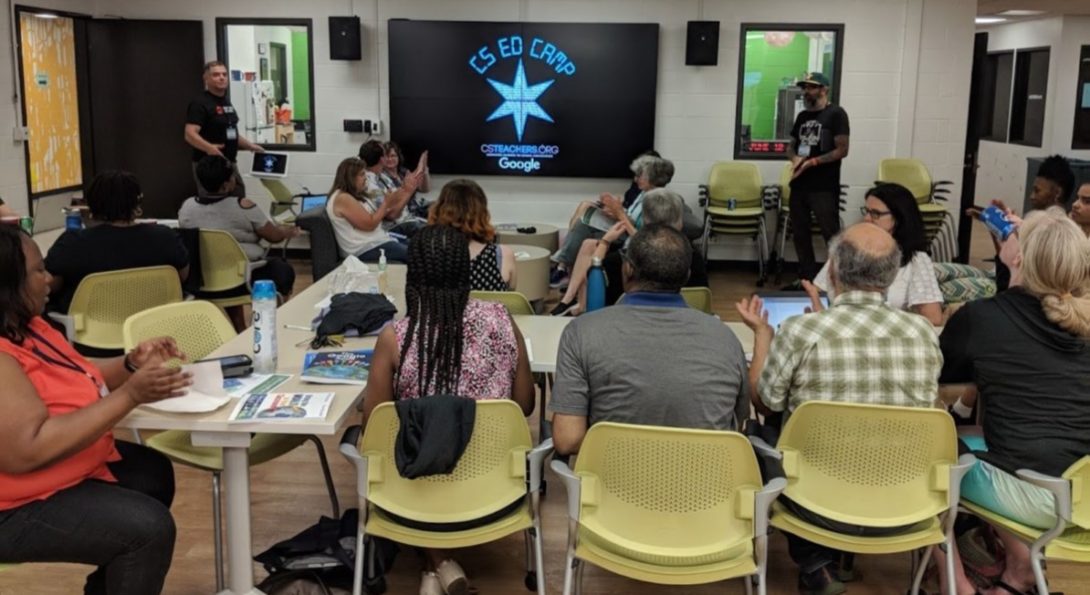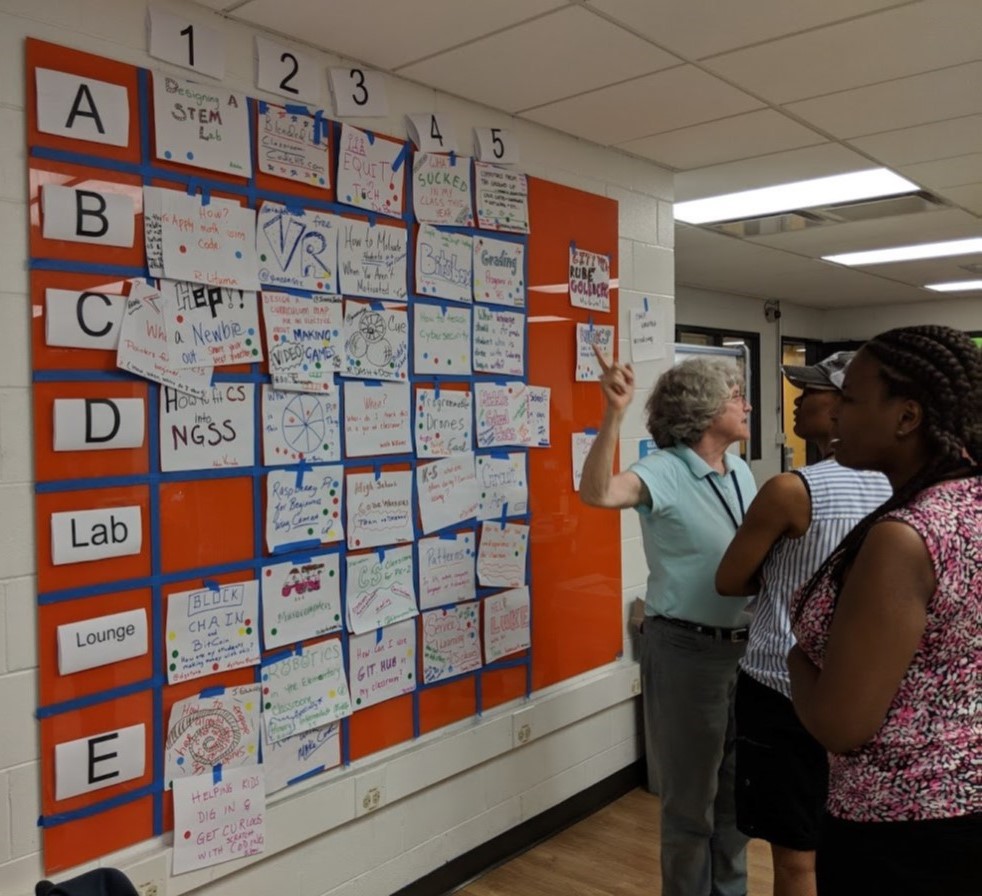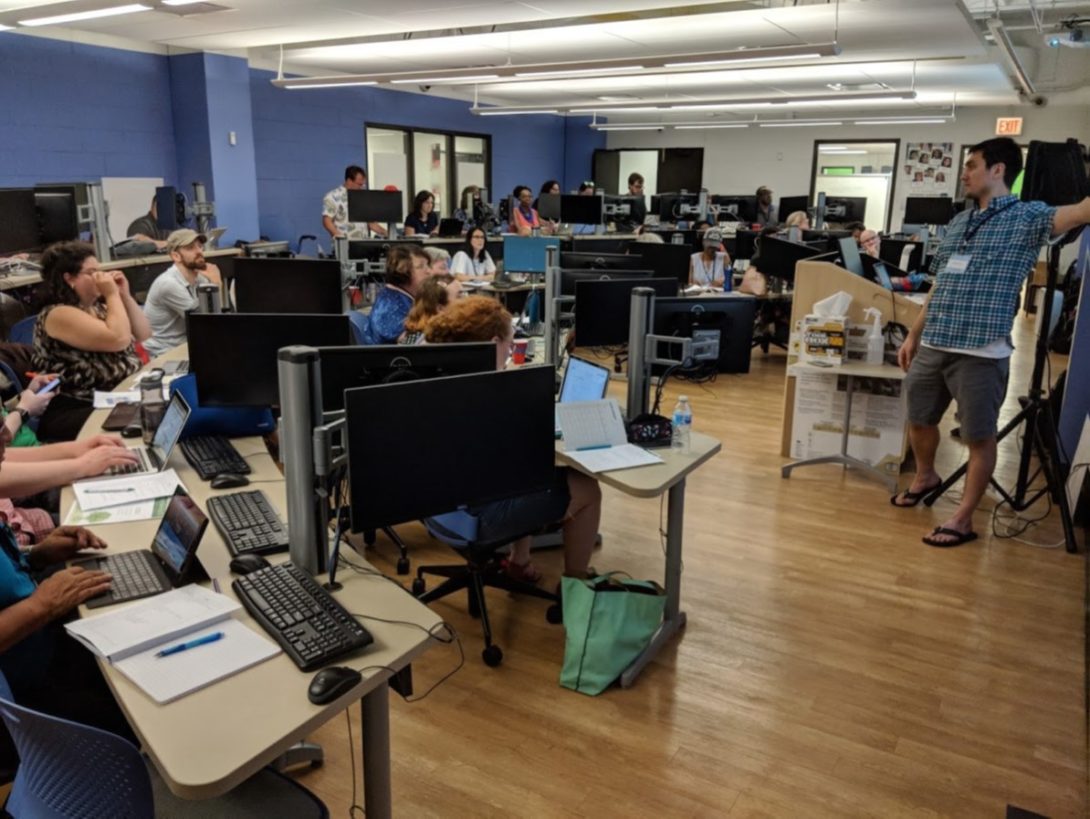60+ Chicago-area teachers attend CS Ed Camp at UIC

Computer Science Teachers Association holds CS Ed Camp for K-12 instructors Heading link

More than 60 Chicago-area CS teachers helped organize the inaugural CS Ed Camp, an event for teachers of the 440-member Chicago Computer Science Teachers Association (CSTA) funded by Google and sponsored in part by the UIC CS Department.
The camp, a participant-driven conference created to support K-12 teachers in their computer science skills, filled up within six hours of its registration opening.
“Watching the numbers grow confirmed in our minds that this event seems to be meeting a real need for teachers to be able to exchange ideas on their own terms,” said Prof. Dale Reed, a founding member of Chicago CSTA.
The CSTA, which has grown to more than 25,000 professionals since it was founded in 2004 by the Association of Computing Machinery, helps empower, engage, and advocate for K-12 CS teachers worldwide.
Chicago is at the forefront of the growing need for those teachers with its Computer Science for All (CS4All) initiative at Chicago Public Schools (CPS), a movement to bring computer science education to every student in the CPS system.
“I’m eager to learn the curriculum to help educate my students,” said Mike Trahey from Wells Community Academy High School in Chicago, whose first year teaching CS will be this fall. “I look forward to collaborating with other teachers and taking it all in so I am more prepared.”
text3 Heading link

For Trahey and the other participants, the CS Ed Camp offered four anchor sessions introducing cryptography, the Google CS First curriculum, mobile web app development, and micro:bits, in addition to session topics participants voted for based on interest.
“These teachers are hungry for meaningful CS material for students,” said Prof. David Hayes, who helped administer the camp and presented one of the anchor sessions. “Teachers have been doing great work on their own in their schools just to provide more opportunities for their students. This camp was a chance for teachers to get active and engaged in ideas and tools they can bring into their classroom next year.”
For the Chicago CSTA, they believe this is only the beginning for educating and preparing CS teachers.
“The history of educational research is rife with examples of well-meaning and well-funded efforts vanishing after the funding dries up, because they have often been an imposition of values and practices imposed from the outside,” said Reed. “A culturally relevant approach celebrates, supports and builds upon the expertise that existing teachers bring to the table. CS Ed Camp builds on this ethos of valuing what teachers have to offer. We have a sense that this ethos and model could be both powerful and replicable elsewhere.”